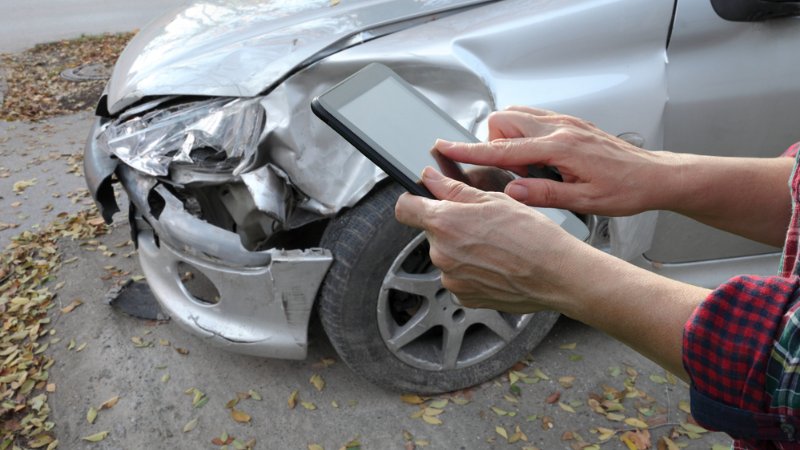Insurance companies portray themselves as friendly and responsive neighbors, always ready to assist clients at a moment’s notice. However, they may not be as helpful when you submit a claim against one of their drivers after an accident.
The potential for bad faith claims and underhanded practices is why the Arizona Administrative Code dedicates 170 pages of Title 20 to governing the practices of insurance companies. Are you confident about how to deal with an at-fault driver’s insurance company?
Learn how to deal with the at-fault driver’s insurance company after a collision. Also, find out how the Phoenix injury lawyers at Sargon Law Group make the process of getting justice much easier.
Determine How To Deal With an At-Fault Driver’s Insurance Company by Understanding Its Goals

Before you speak with the other party’s insurance company, you need to understand its primary objective. Insurance companies generate a profit the same way all businesses do — by taking in more money than they spend. That means they’ll use whatever tactics possible to lower the amount they have to pay for your claim, even if the other driver is clearly at fault.
Insurance companies don’t have to commit illegal activities to minimize your claim either. Experienced adjusters and agents will ask questions and look for any statement that confirms that you were somehow responsible for your injuries, at least in part.
Additionally, we must recognize that adjusters do have a responsibility to weed out invalid claims, so they may approach you from a skeptical position and look to poke holes in your case. With these facts in mind, you can prepare to deal with the at-fault driver’s insurance company.
Call Your Insurance Company First
You should reach out to your own insurance company before speaking to the other party’s insurer. Pay attention to any details your agent may give you because, in certain instances, you may need to recover some of the expenses through your own insurer.
Also, the time to settle the claim might be too long for you to be without your vehicle. In Arizona, insurers have 40 days from the time you contact them to settle claims. To get back on the road sooner, you could decide to pay a deductible and have your insurance company cover specific costs. Then, your insurer can negotiate to recover those costs from the at-fault party’s insurer later.
In fact, you might decide to only deal with your insurance company if you have collision coverage and the accident only involved minor property damage and no bodily injuries. Remember that you can fight to recover the cost of your deductible from the at-fault driver or their insurer in small claims court if it’s worth your time and energy.
Gather Necessary Information

As you’re getting ready to deal with the at-fault driver’s insurance company, you’ll need to be ready to confirm vital details to move the claim along. These include:
- Your legal name
- Your address and contact information
- Your car’s make and model
- The collision’s location
- Your version of the events preceding and during the crash
When you provide this information, stick strictly to the facts and avoid making any comment that would allude to you being responsible for the accident. Even if you believe you might have been partially to blame, you may not have all of the details and could unintentionally harm your case.
Another way to protect your case is to avoid commenting on your condition. A representative might ask, “How are you feeling today?” in what appears to be a simple greeting. However, the insurance company could then use a generic response of “I’m fine” to minimize your injuries. Always remain cautious in how you deal with the at-fault driver’s insurance company during communications.
Do Not Discuss the Case on the Phone
Insurance adjusters are experienced professionals and could trip you up unsuspectingly. How can you avoid accidentally saying anything that could harm your case?
Fortunately, you have no obligation to speak with them over the phone. You also don’t have to provide a recorded statement and should never consent to doing so.
A valuable tactic that many have used is to not have phone conversations with the adjuster at all. You can communicate the details of your case through letter, email or fax. Of course, when our team at Sargon Law Group represents you, we will communicate with the other insurance company for you.
We know how to deal with the at-fault driver’s insurance company in all types of car accident cases for residents of Maricopa County, including Buckeye, Surprise and Avondale. As a result, you can avoid the stress of dealing with adjusters and focus on recovering.
Get Acknowledgement of Liability in Writing

In legal matters, an oral agreement is rarely enough to confirm a deal unless you have strong evidence. Especially when the other driver is 100% at fault, you should get in writing that the other driver’s insurance company accepts full liability for the accident.
A simple email or fax message can accomplish this. If you’ve decided to deal with the at-fault driver’s insurance company, you can send a brief message that specifically asks if the named insurance company accepts liability for the accident involving their driver on the date of the accident. However, getting this confirmation is another item you can leave to us at Sargon Law Group when you team up with us.
You Do Not Have To Accept the First Offer or Even a “Final Offer”
Expect that an insurer will provide a lowball payout on the first offer. The company may act like it’s a very good deal, but have you considered everything your case is worth and have the documentation or legal precedent to back it up? That knowledge is essential in understanding how to deal with the at-fault driver’s insurance company and whether to settle or take the case to court.
Let Sargon Law Group Help You Deal With the At-Fault Driver’s Insurance Company
Thankfully, you don’t have to study how to deal with the at-fault driver’s insurance company after an accident. The Phoenix car crash lawyers at Sargon Law Group will take that burden off of your shoulders so you can move on with your life. Contact our office today to find out how we can help you get justice.
